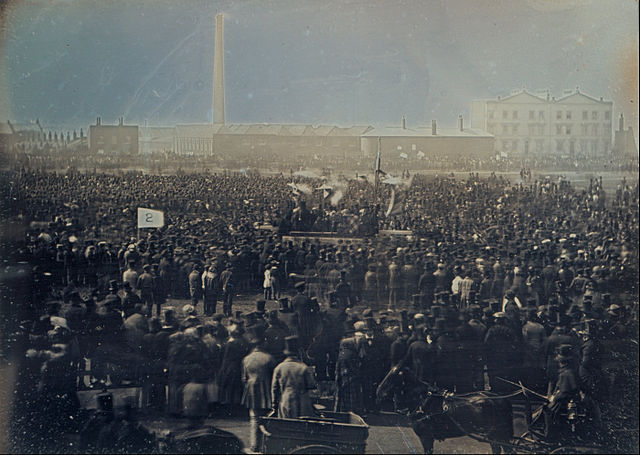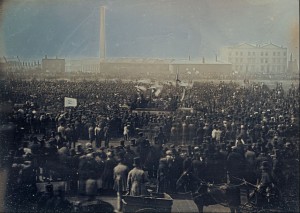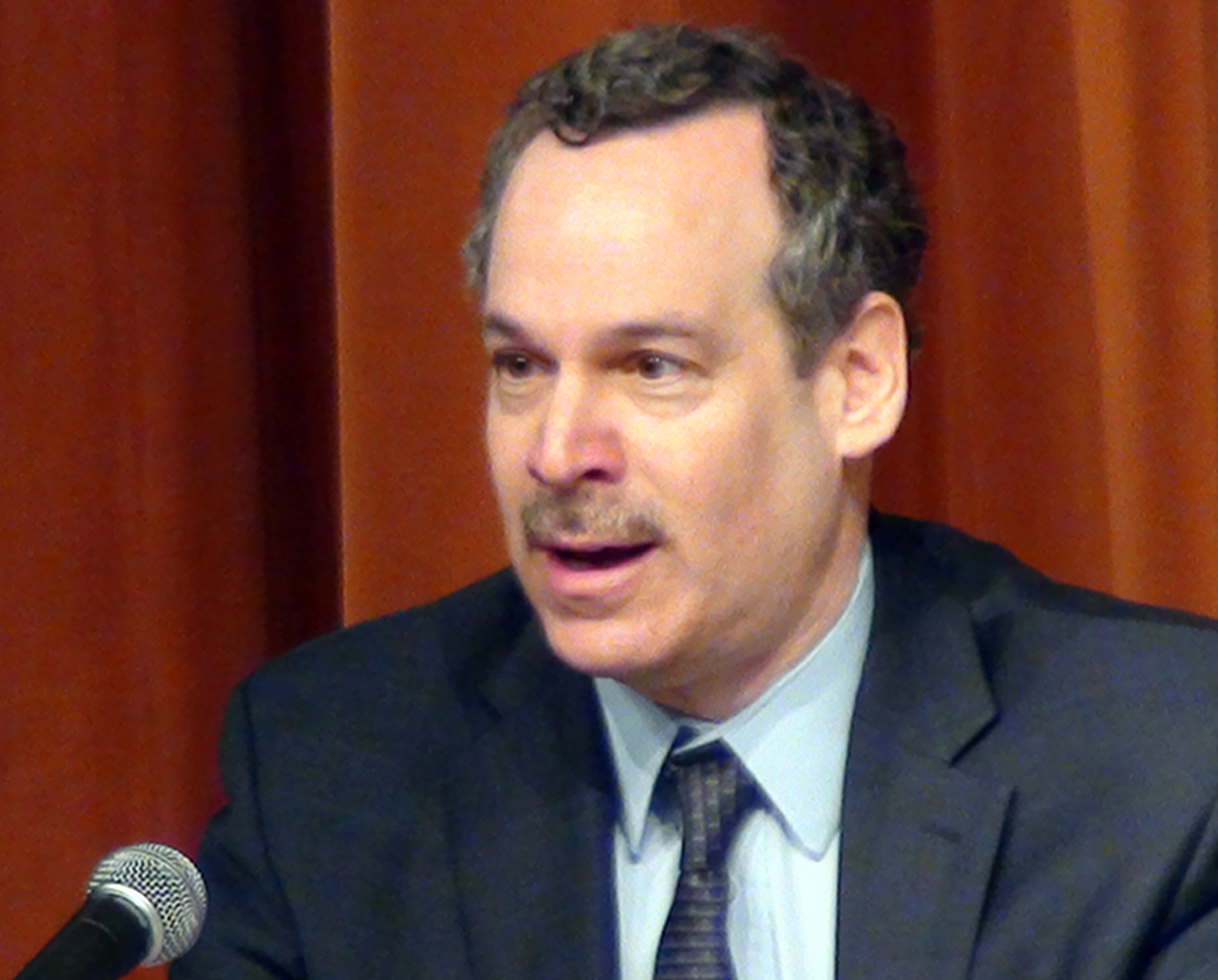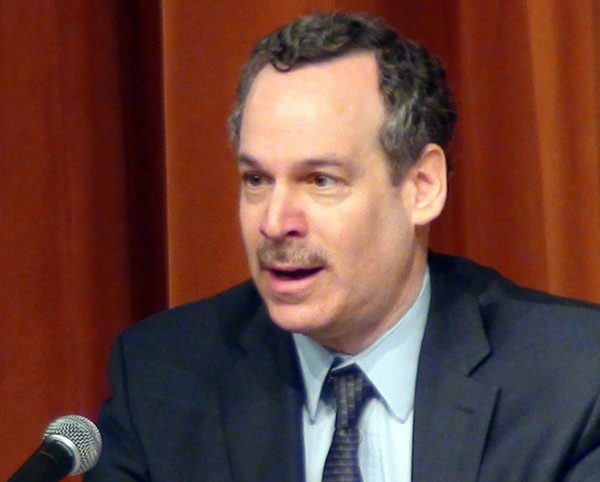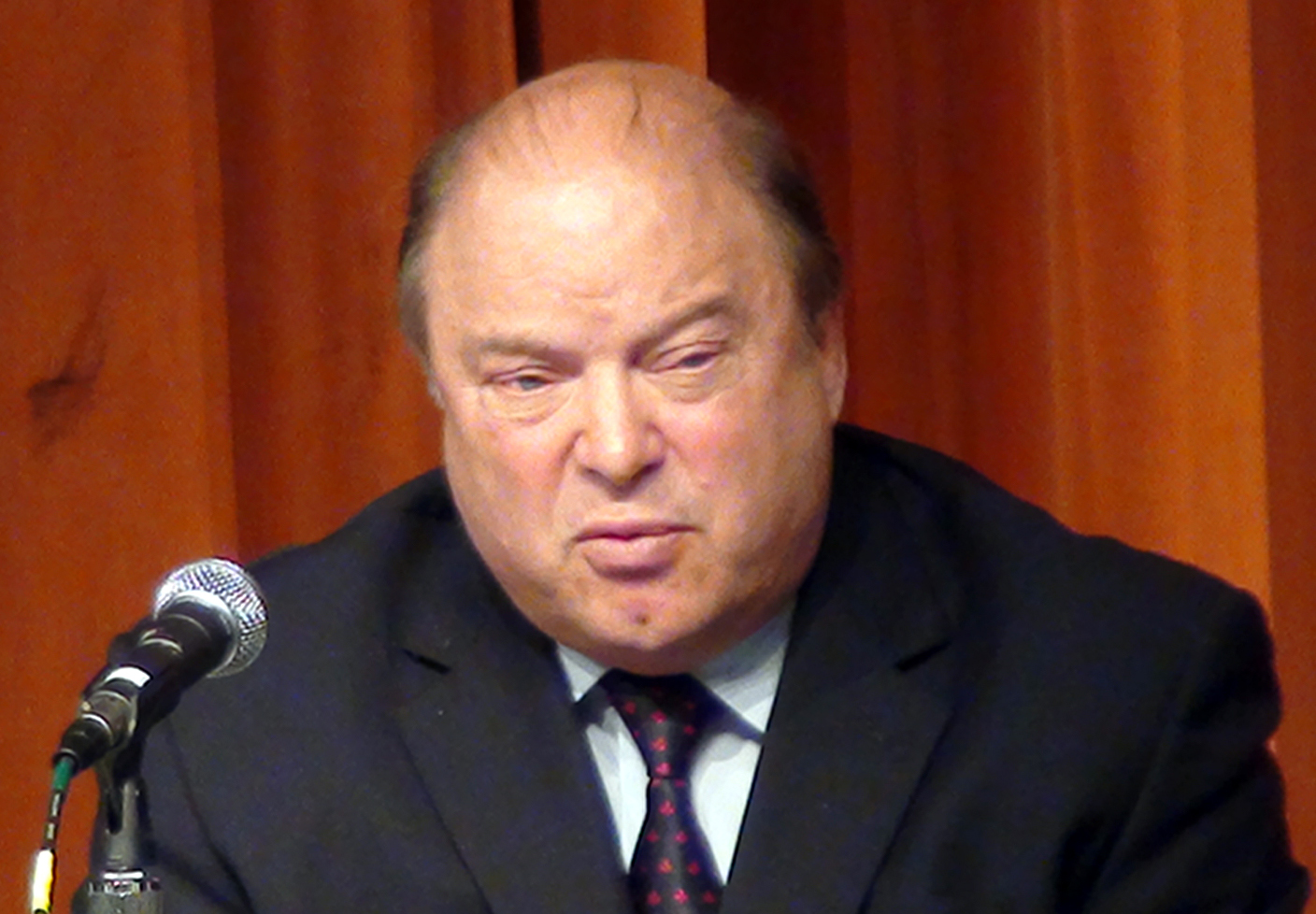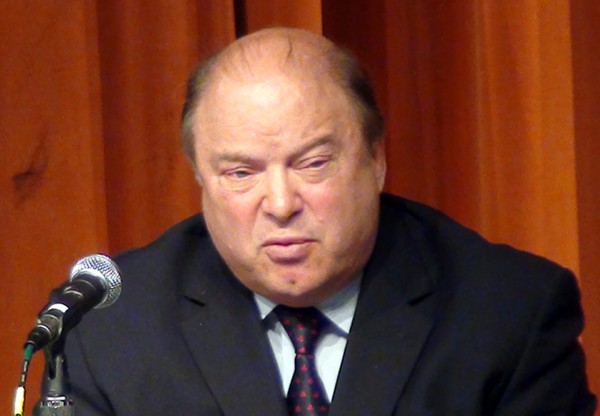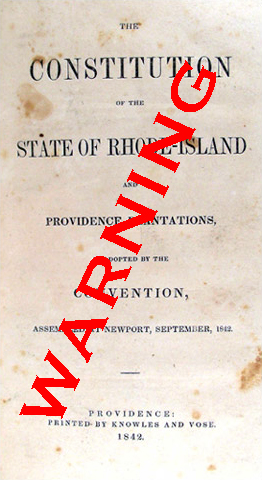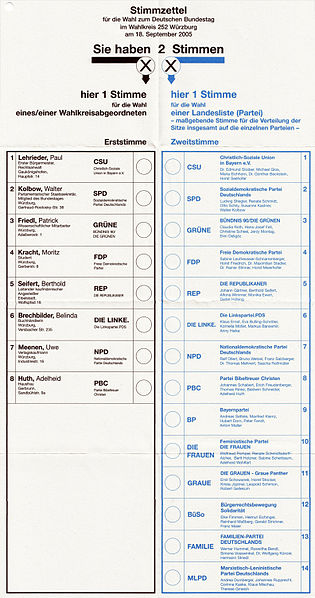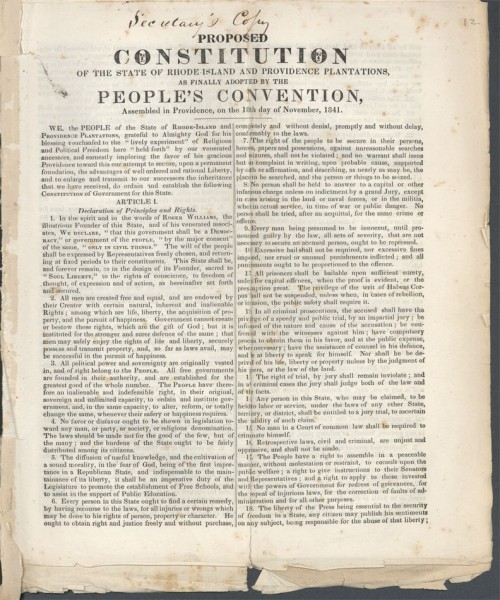 Like the rest of us, I’ve seen the expensive ads telling us not to vote for a constitutional convention, which is Question 3 on the ballot Tuesday. What these ads don’t say is how consistently insiders are backing the effort to stop a convention. The role of insiders has gotten far too little coverage in the media.
Like the rest of us, I’ve seen the expensive ads telling us not to vote for a constitutional convention, which is Question 3 on the ballot Tuesday. What these ads don’t say is how consistently insiders are backing the effort to stop a convention. The role of insiders has gotten far too little coverage in the media.
I recognize that many of those opposed to a convention are not insiders. I know a lot of the people doing the grunt work on the anti-constitutional-convention campaign, and I can vouch for the fact that they’re not insiders.
Rhode Islanders are split on the issue, though polling suggests more of us are in favor of having one, including many good-government people such as former Common Cause director Phil West, and many progressives such as those who founded Just Reform Rhode Island, a group I belong to. So it’s true, if you’re looking for non-insiders, you can find them on both sides of the issue. But it’s significant where the biggest insiders stand, and they’re not as split as we are — they’re backing the opposition to the convention.
Let’s start with the top politicians. We are told by anti-convention people that we should vote against a convention because it could be controlled by top politicians, like the Speaker of the House. Well, if that was true, you would expect politicians to be favoring it. They’re not. Speaker Mattiello opposes a convention. Not a single top politician in the state is in favor of it, and they try to get voters to turn it down (example1, example2).
In fact, conventions shift power away from top politicians and toward the voters. If there’s no convention, politicians can continue passing bad laws and rejecting good ones, and the voters never have a say. But a convention is different. While in ordinary times most State House politicians get re-elected easily without even having any opponents, a constitutional convention attracts more candidates. If you were a political insider wanting to keep your friends in power, you’d prefer leaving things to the General Assembly, where year after year it’s pretty much the same career politicians elected and doing each other favors, and you’d fear the reforms that could be passed in a constitutional convention where it’s easier for decent people who aren’t career politicians to be elected.
We, as regular people, have goals that are the opposite of political insiders’ aims. After the 38 Studios scandal and the police raid on the State House, we want to see more democratic accountability, and insiders naturally don’t like the good things that are likely to be pushed forward in a convention by a public which is eager for positive change. What comes out of a convention will not make the insiders stronger, it makes them weaker and makes the people stronger. Another advantage of a convention is that a convention doesn’t have the General Assembly’s ability to pass laws on its own. Every change that the convention proposes must go to the voters, and will not take effect unless voters say so. So, compared to the General Assembly, a convention offers more safeguards against bad laws. That’s especially true in 2014 Rhode Island, where the voters not only want reform but also support progressive values, much more so than our politicians.
In case anyone thinks insiders like Mattiello secretly want a convention, their actions speak even louder than their words. Mattiello and other top State House politicians appointed a “preparatory commission” this summer to produce a report on the possibility of a convention, and Mattiello chose a convention opponent to help run the commission. The commission held only a few hearings in the State House in Providence, without visiting the rest of Rhode Island. Its final report only briefly discussed what a convention could do, and estimated the cost of a convention as $2.5 million: a surprisingly high estimate, considerably more than the costs for the 1973 and 1986 conventions even after accounting for inflation. Next, this report was edited down, in the version sent to voters in the Voter Information Handbook, so that it said nothing at all about what topics a convention could address and only told voters about the convention’s cost, again using the unusually high estimate of $2.5 million (which is still only $2.40 per person). When our political elite dwells on the minor cost as an argument against change and accountability, it’s a telling sign.
A couple of people involved with the anti-convention campaign have posted articles on RI Future, highlighting a press conference where 3 former delegates to the 1986 convention tried to convince us not to have another convention (article1, article2). It’s worth noticing that these 3 former delegates at that press conference trying to stop a new convention are all people who have developed strong insider connections.
Two are former RI state senators (one became the Senate Minority Leader), and the third was appointed by notoriously corrupt mayor Buddy Cianci to a judgeship (and later promoted by Cianci to chief judge). Now, I don’t know what was going through these 3 people’s minds, and I don’t want to trash their motives. The fact that a person has insider connections doesn’t necessarily mean that he or she isn’t an honorable person. But on the other side, I think it’s reasonable for Rhode Islanders who are concerned about the future to not accept things just because an insider-y group says so. And the fact is that these 3 well-connected people don’t speak for all former delegates. It’s significant that so few of the former delegates were willing to join in that message — I’ve talked to other former 1986 delegates who have learned from the 1986 convention and now want a new convention to do things better.
It’s true that the 1986 convention had flaws: there wasn’t enough public organizing in advance of the 1986 convention to keep things out of the insiders’ hands. (My group, Just Reform Rhode Island, is already working on that.) And it’s also true that the last convention was held in 1986, when Rhode Island was in a much different place politically than it is now — for instance, Rhode Island voters are now pro-choice by huge margins. We’re now faced with a choice: we can either vote down Question 3 and stay closer to the constitution written in 1986, when Rhode Island was very different, or else vote for a convention as an opportunity to move the constitution to something that better fits the values that Rhode Islanders now have 30 years later. What does it say when 3 of the people who had the privilege of being involved in writing the 1986 constitution, and then later developed insider ties, are telling us not to try changing their work now? I can’t speak for why they’re saying that, but to me, their anti-convention message doesn’t cut it.
The insider effort against the convention isn’t limited to politicians. Take RIPEC, the Rhode Island Public Expenditure Council, a group whose board is largely made up of big businesses (some of them based out-of-state) and those with political clout. They’re always given a very respectful hearing at the State House, more so than people who are trying to voice the concerns of the rest of Rhode Island. RIPEC issued a report on Question 3 that didn’t directly say “Vote No on a convention”, but does repeatedly hint that a convention may not be a good idea. The fact that these economic super-insiders are leaning against a convention is worth noting.
In fact, it’s seriously misleading when the anti-convention campaign says that a convention would mean “wealthy special interests” would take over. In reality, the anti-convention forces are the side with the most money. They’ve spent over $140,000 trying to stop a convention from happening, about twice as much as was spent on the pro-convention side, according to Board of Elections filings. Not all of the groups contributing to that $140,000 are bad. But one of their biggest donors, for instance, is an organization administered by the Senate Majority Leader, Dominick Ruggerio: it’s called the New England Laborers’ Labor-Management Cooperation Trust. Despite the word “Laborers” in its name, it’s not strictly a union group, but is a kind of combo labor-business-political insider lobbying hybrid, with half its trustees coming from business and half from labor people. This group runs mostly on business contributions, but it’s administered by the Senate Majority Leader, and it has already spent $10,000 trying to stop a convention.
If you look at the expensive ads paid for by the anti-convention campaign, they never mention that Senate Majority Leader Ruggerio’s group is backing them. Rhode Island law requires political campaign ads to include information about who is behind the campaign, so that voters can learn who is backing or organizing a campaign without having to go look up little-known filings. Until a few days ago, the anti-convention campaign simply left out all of these required disclosures from all their ads. After the Board of Elections found they violated the law, they started adding more information, but they still don’t mention that Majority Leader Ruggerio’s group is one of their top donors. Their list of top donors includes several more innocent-sounding groups instead. On the whole, I think this persistent lack of disclosure shows a terrible attitude towards voters’ right to know.
It’s ironic that the anti-convention people act like they’re in favor of good government, and stir up fears of big money trying to buy the system, without doing what real good-government people do and showing an open attitude towards disclosing the issues related to their own finances. In reality, screaming that “wealthy special interests” will buy a convention misses the point: the real problem is that the system we have is already dominated by these wealthy interests. Big money can do very well if there’s no convention. What a convention does bring is a chance for the people to have more of a say.
If big money at the national level wanted a Rhode Island convention, or if big money at the state level did, why wouldn’t they spend their cash here and make a difference? The fact is that the insiders and the fat cats are fairly satisfied with how things are. Most of them are aware that they face more risk of losing than gaining if a convention did give voters the opportunity to have a say in how the system works. Don’t just take my word for it: the money speaks for itself. The idea that a convention could be a tool for wealthy special interests is backed up only by a little talk, not by serious money. No investor out for mere gain has decided to treat financing a pro-convention campaign as a reliable investment, because voters are quite likely to use a convention to rein in the abuses of the well-connected.
So it’s clear where the insiders stand, the politicians as well as the financial backers. As for the rest of us, we’re unfortunately split on a convention, and it would be better if more of us start taking this opportunity to promote the positive changes that the insiders are resisting. I know there are some who are honestly against a convention, and it certainly isn’t true that those against a convention are all bad people. But to suggest that a convention is a tool for insiders and the wealthy is a misleading, expensive falsehood. It’s a tool for us, if we prepare for it right, and those with too much clout are right to fear it.

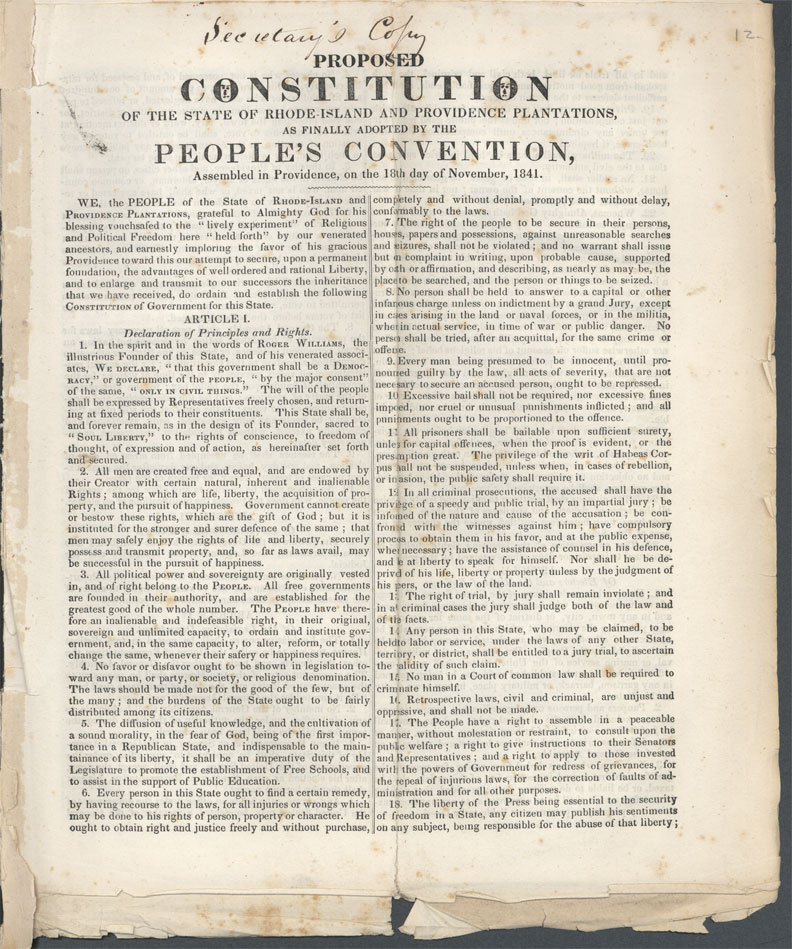
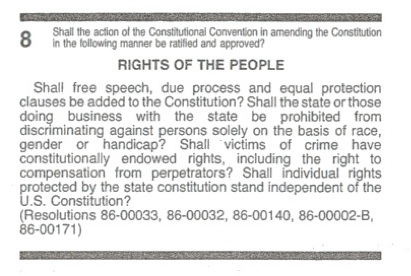
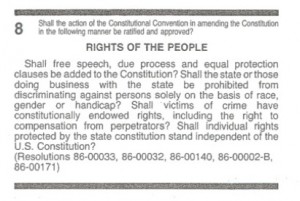


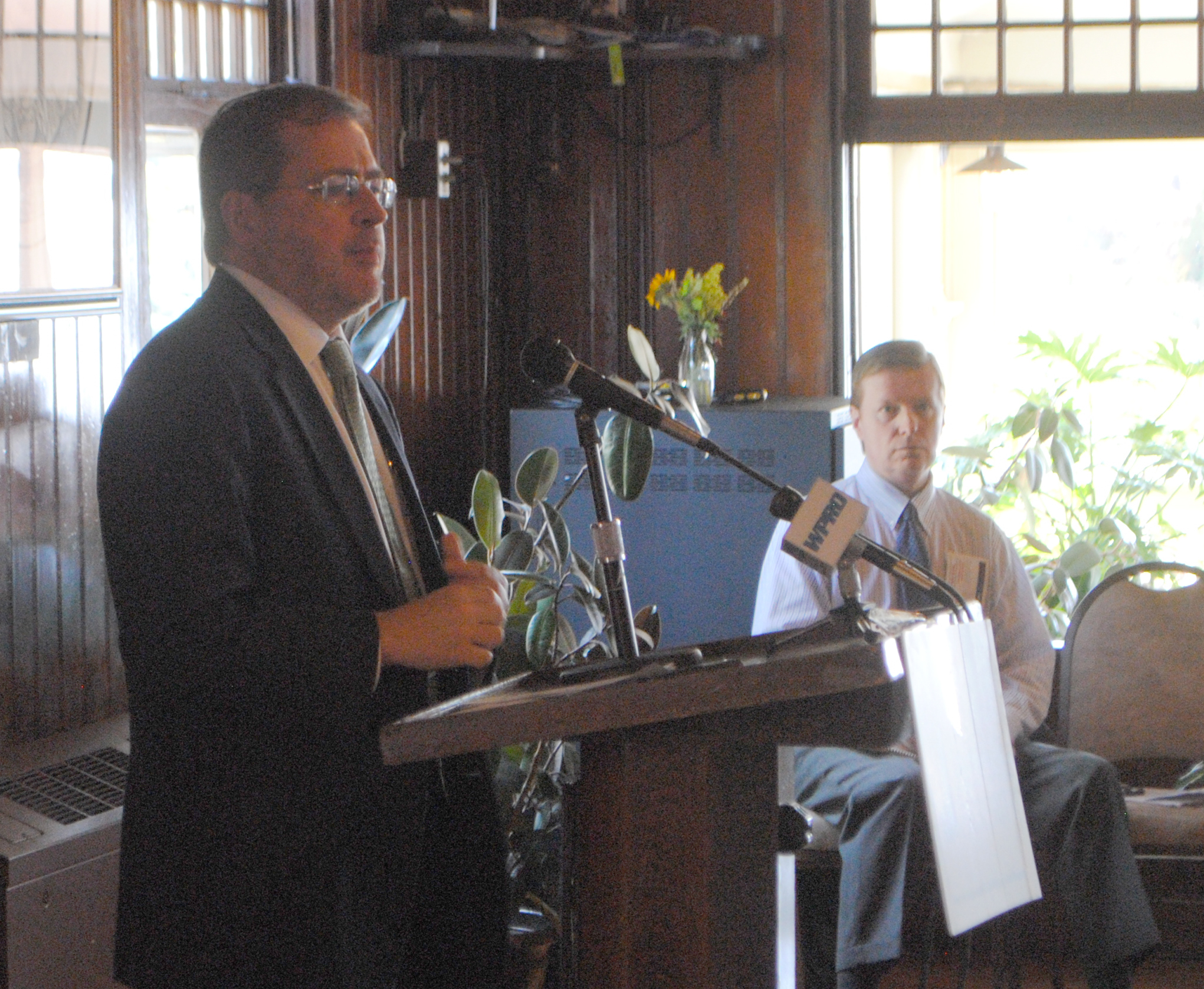
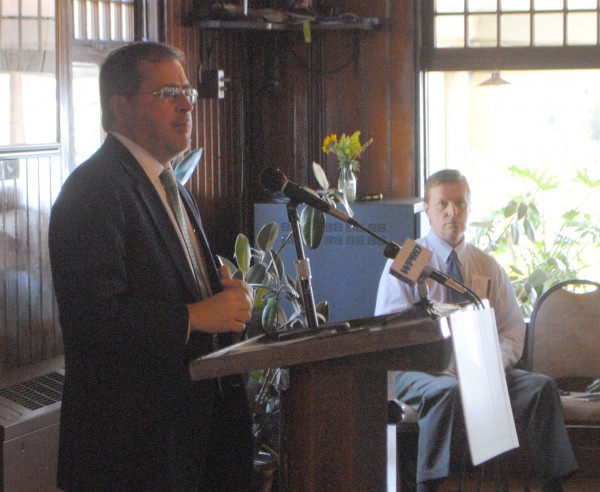 As I listened to Grover Norquist address the crowd of about 80 people at the swanky and exclusive Squantum Association in East Providence on Thursday afternoon, I couldn’t help but wonder if the slick conservative operative knew what he was talking about.
As I listened to Grover Norquist address the crowd of about 80 people at the swanky and exclusive Squantum Association in East Providence on Thursday afternoon, I couldn’t help but wonder if the slick conservative operative knew what he was talking about. Norquist says that during the process of a con-con, “one or two amendments might become intriguing and important” failing to note that the last time a con-con was held, 22 amendments were bundled into 14 ballot questions. These amendments were all over the place in terms of civil rights restrictions for minorities and women. There is a big difference between two amendments and 22.
Norquist says that during the process of a con-con, “one or two amendments might become intriguing and important” failing to note that the last time a con-con was held, 22 amendments were bundled into 14 ballot questions. These amendments were all over the place in terms of civil rights restrictions for minorities and women. There is a big difference between two amendments and 22.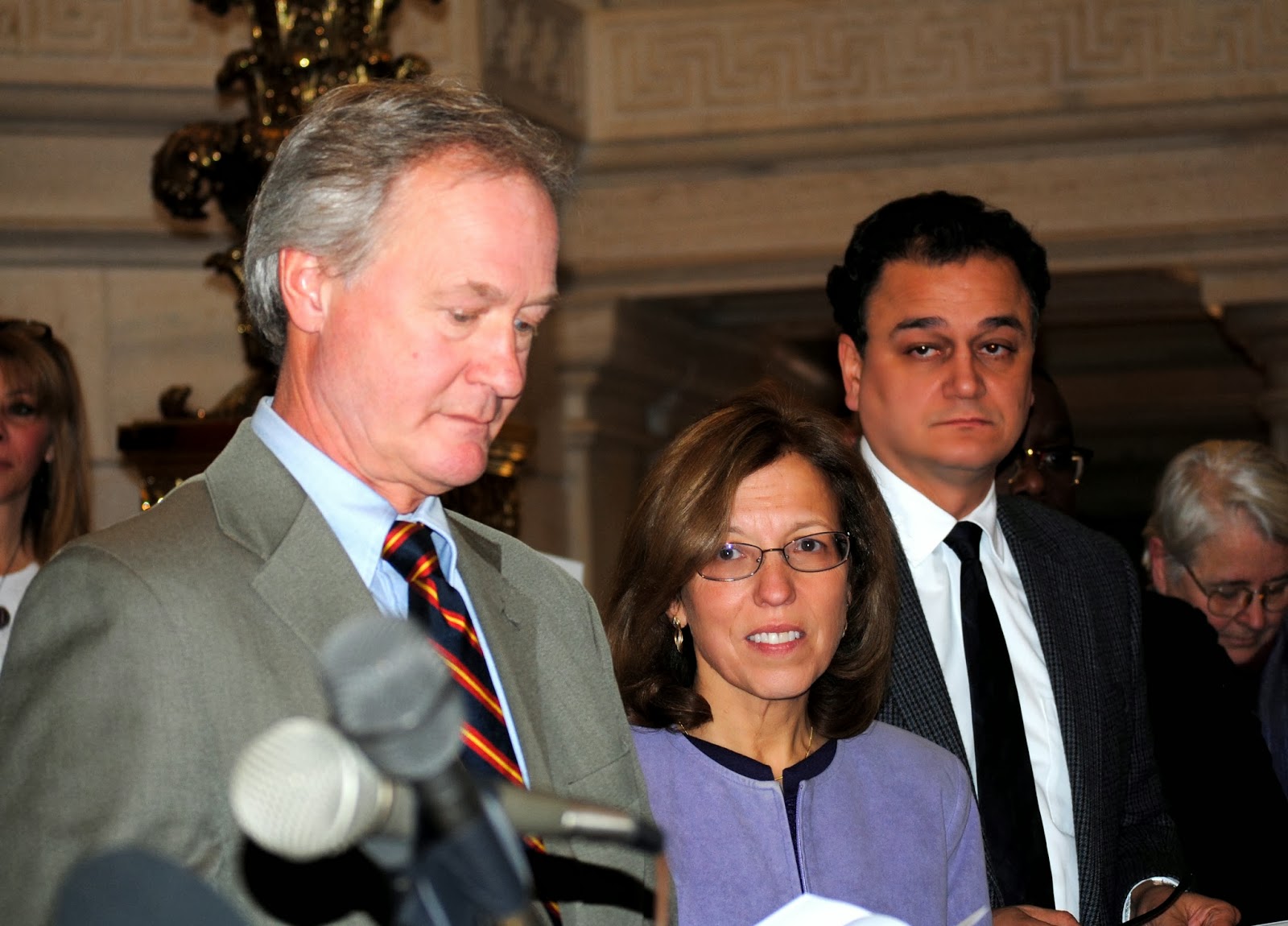
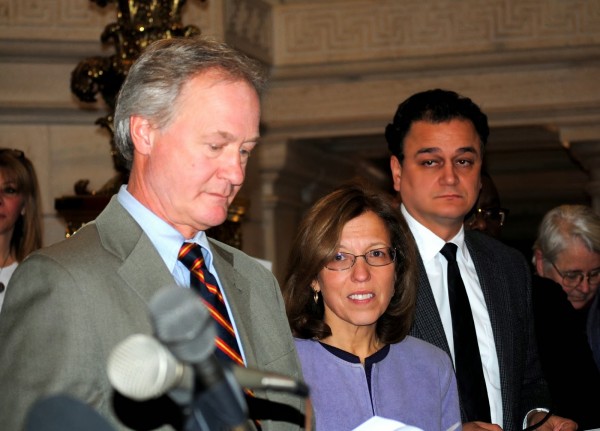
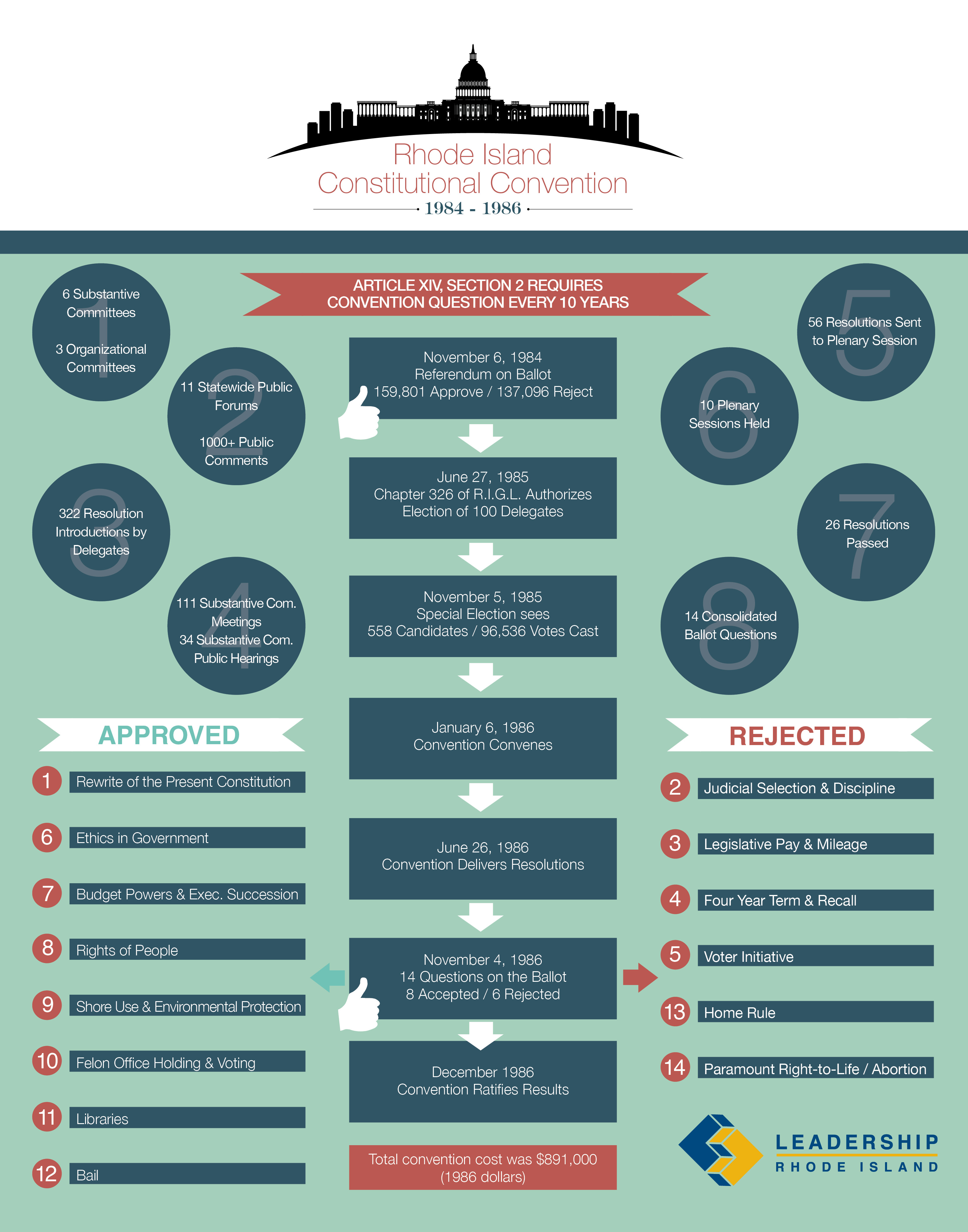
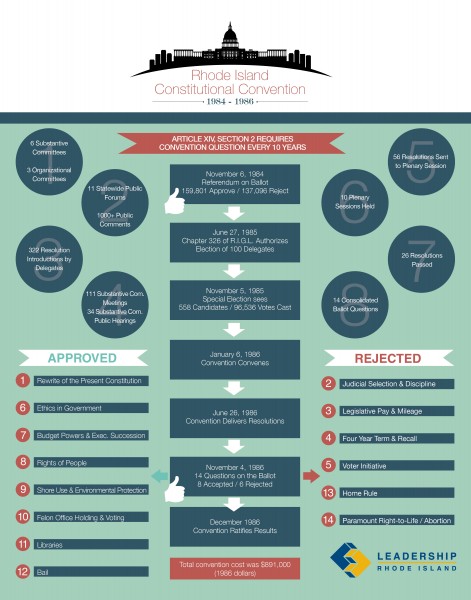
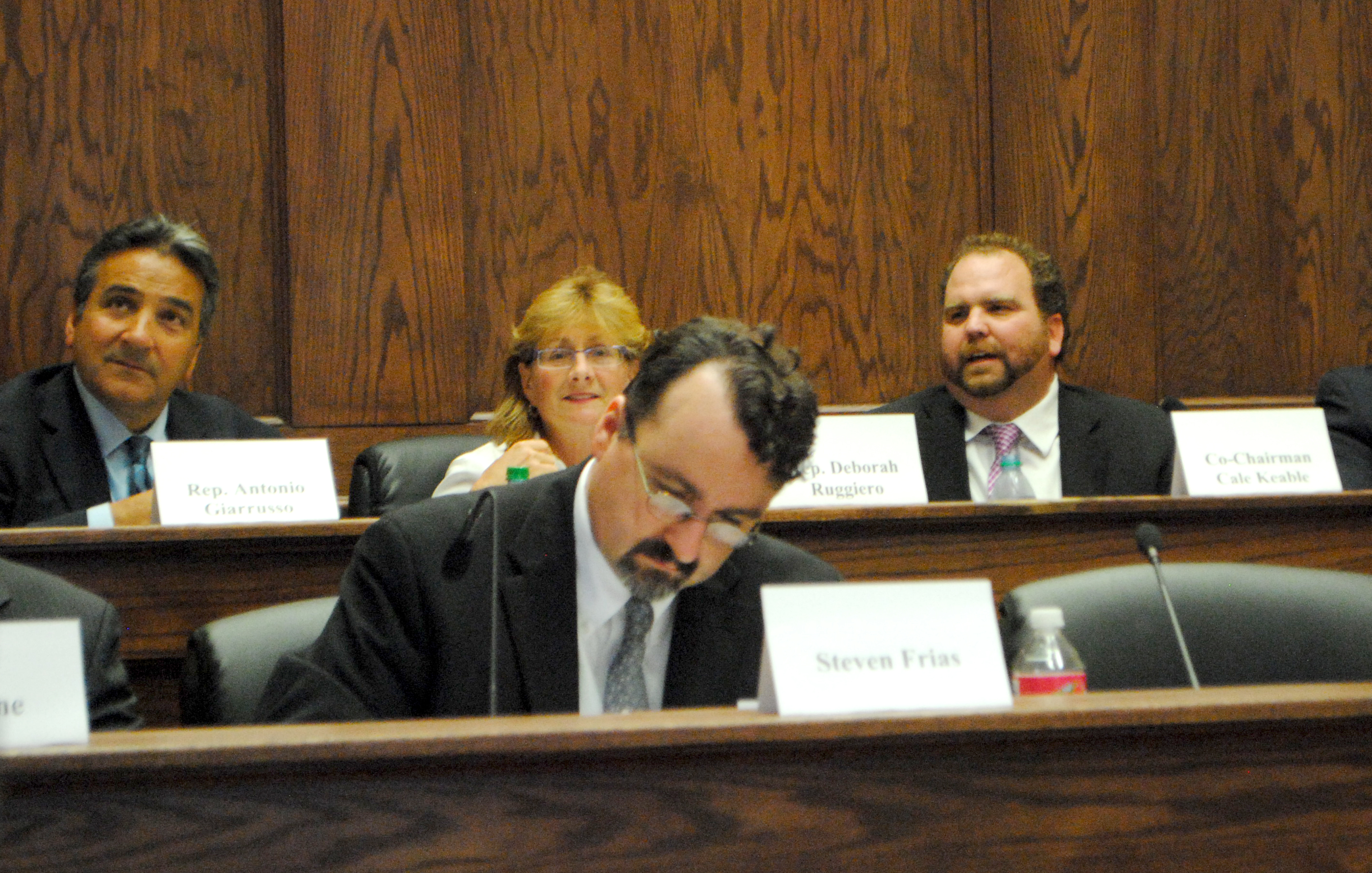
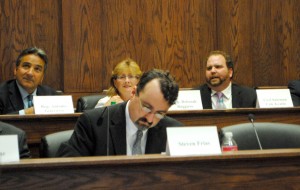 At yesterday’s bi-partisan Preparatory Commission ahead of a report on “possible issues for consideration at a Constitutional Convention,” lawyer and Republican national committeeman
At yesterday’s bi-partisan Preparatory Commission ahead of a report on “possible issues for consideration at a Constitutional Convention,” lawyer and Republican national committeeman 